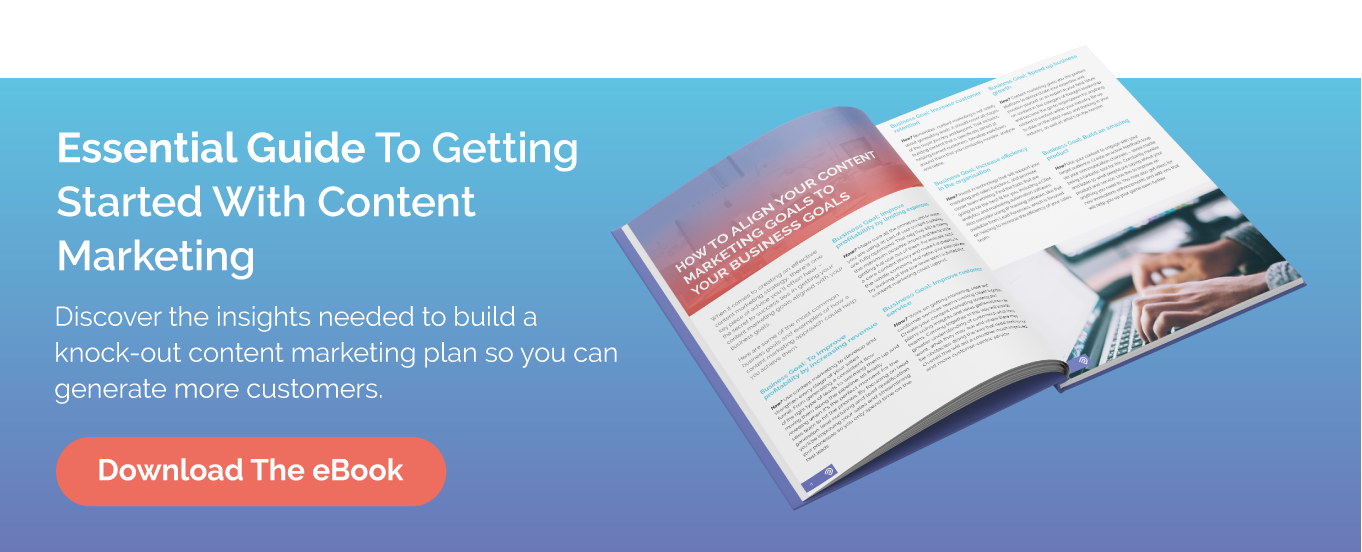Your content marketing strategy is arguably one of your most powerful and important tools. It contains big ideas, small details, and overviews of your past and present marketing activities.
Anyone who's been in charge of creating a content strategy will know it's no easy feat, and can quickly become an expensive exercise when tallying up the costs of various tools required to complete it.
The internet is full of free and freemium-modelled resources and tools - you just need to know where to find them!
Here are our top 12 tools to help you find the best opportunities and insights when creating your content marketing strategy.
The Importance of a Content Strategy Framework
.png?width=832&name=Content-Marketing-dps-lrg-2%20(1).png)
Why would a content marketing agency share tips on how to conduct your research using free tools? Three very simple reasons - which also happen to be our core values: Trust. Tenacity. Transparency.
Transparency
It’s barely an exaggeration that #fakenews has shaken the foundations of our society. Future generations struggle to determine whether what they read online is true or not. We believe there is a moral duty to ensure your content is well researched, grounded in truth, and created with the intent of enriching the reader in some way.
Trust
Not just a ranking factor; Google assesses the quality of a website’s content when deciding how to rank it. The three principles that underpin these quality rater guidelines are "E-A-T" - Expertise, Authority and Trust.
Content that upholds these values is regarded as high-quality.
High-quality content correlates with better rankings.
Better rankings correlate with more visitors to your site, longer sessions, and a greater conversion rate.
Tenacity
With the right people and skills, great content is possible.
But to create content that meets all the requirements of Best Practice Guidelines, speaks to the buyer in a way that inspires trust, AND ensures your online performance grows with every published piece; now that takes tenacity. And our agency has that in bucket loads.
Essentially, our guide will teach you how to build upon an initial content idea, understand your target audience and tailor content to their tastes, as well as assess and replicate other successful content in your niche.
We're here to help you learn how to make sure your content is relevant and reaches the right audience.
Content Strategy Research
These are tools that a content team can use to cast an increasingly wide net around their initial ideas, hopefully sparking many others. Insights are then collected to see whether the ideas align with the interests and browsing habits of the target audience.
We’ll use coffee as the example product in this guide where an example is necessary. Because it powers us, and we love it.
1. A notebook - good old fashioned idea generation.
There’s nothing like the feel of pen on paper. Your ideas are given free rein to grow, with no platform limitations to box you in.
Yes, yes. We live in a digital age, but sometimes a blank sheet of paper is the best way to get your ideas flowing in the first instance.
For this step, just start with writing some words around your chosen topic. Make a mind map by drawing lines between different, related words. Throwdown initial ideas and don’t worry if they aren’t very sophisticated: they will be bolstered later.
If you’re a real technophile or papyrophobe, use Google Docs to write your ideas and Mindmup to make your mind map.
- Cost:
- Notebook and pen ~£1.
- Mindmup is freemium, with a $50/year charge for small teams.
- Google Docs - free.
2. Answer the Public (ATP) - visualising your ideas.
AnswerThePublic is a tool that takes a term and uses it to generate questions (‘how does coffee keep you awake?’), terms with prepositions (‘coffee for hangover’), comparisons (‘coffee vs caffeine pills’), and alphabetical pairings (‘coffee addiction’), leading to hundreds of potential idea stems.
A certain amount of sifting is required, as some of the suggestions are rubbish due to the partially random nature of the recommendations: 'cofficenear.me', 'coffee is too hot 18+’, and ‘coffee with Jesus’ won't get you the types of clicks you're looking for,
We’d like to give an honourable mention to HubSpot’s Blog Ideas Generator. here - another source of sometimes-random-but-occasionally-useful ideas:
- Cost:
- AnswerThePublic - free.
- HubSpot Blog IDea Generator - free.
3. "People Also Ask" and Google Autocomplete - real-time search behaviour.
This is less of a tool than two components of Google’s search results page. We’ve included them as they provide more coherent, reality-based questions people are asking about your chosen topic.
What most agencies won't tell you is that these autocompleted suggestions are a great trend-identifying tool; they show content suggestions before paid-for keyword research tools have gathered enough data to do the same. That's good soup.
The suggested questions and related searches for coffee reveal an interesting variety of topics.
These recommendations are based on an analysis of millions of searches and represent related themes that Google deems most relevant.
Understanding how people phrase questions allows you to bake specific phrases into your content, and drive more relevant website traffic. While this is less necessary than in the past thanks to Google’s increasingly sophisticated sentiment analysis, it doesn’t hurt.
- Cost - free!
4. YouGov Profiles - demographic analysis.
Writing content for demographics not represented by your content team requires an understanding of their interests and personalities.
Instead of hours of scattered research, guesswork, or time-consuming interviews, YouGov gives insights into your desired demographic, including phrases they may identify with, their brand affinities, media preferences, and even their favourite food.
For the most relevant results, explore brands and concepts similar to the ones you are planning to write about.
This is a representation of the average customer of Costa Coffee, apparently.
- Cost: freemium, with notable restrictions on functionality and insights for the free version.
- Price varies based on the size and scope of business/project requirements.
5. Reddit - a finger on the pulse of your target audience.
Reddit's slogan - "Dive into anything" - gives you a really good idea of what to expect.
As a platform of communities that share content and up-vote or down-vote at will, this is one of the most insightful (and sometimes brutal) ways to find out what your target audience is actually interested in and talking about.
As well as a site-wide search for terms, you can navigate to the subreddits that reflect the communities you're trying to target. You can sort content by popularity, giving you an incredibly convenient and meaningful insight into the nature and format of popular (and unpopular!) topics.
The comment threads often reveal new discussion points that your content could explore or questions it could answer.
The top posts of all time for the keyword ‘coffee’
The top posts on Coffee and Coffee Stations, the two most popular coffee-related communities.
In short, Reddit is a good way to test the relevance of ideas in the context of the audience you’re writing for and to highlight topics the community finds interesting.
- Cost - free.
6. Google Drive Explore tool - suggestions based on data.
By this stage, you’ll most likely have a big list of ideas for your content. If you plug these into a Google Doc and write a few paragraphs summarising them, the ‘Explore’ button in the bottom right can give you one more chunk of inspiration.
Click it, and wonderful things happen.
Google’s documentation for this tool explains that “you might see files, images, or information you can use to help finish your work”, based on analysis of themes you’ve written about.
- Cost: free
Content Strategy Metrics & Performance
The tools in this section help you to assess the likelihood of your content ideas performing by comparing them with content published elsewhere. The plan is to ensure you don’t waste time and effort creating content that will tank.
7. BuzzSumo - social and influence checker.
The BuzzSumo tool shows you how similar content has performed in the wild with regard to traffic and shares across the main social networks. You can sort results by performance on individual social networks, or by combined performance. ‘Evergreen score’ can also be seen, which indicates the freshness of older content.
The Onion proves that #fakenews needn’t be evil.
Buzzsumo offers a bunch of other tools, some of which are very helpful for outreach efforts later on in the content process. The Influencers tab shows some of the biggest voices writing about the topic you’re interested in.
- Cost: 7-day free trial, or a selection of packages upward of $79/month.
8. MOZs Link Explorer (formerly Open Site Explorer) - explore tangible performance metrics.
MOZs Link Explorer tool provides further metrics, supplementing social share information with backlink information and the relative strength of pages on a website.
Browsing the top pages of a competitor website allows you to see which content pieces have worked well for them, especially if this analysis is confined to their blog pages. Understanding the properties of content that performs well allows you to replicate these aspects (but never to plagiarise).
- Cost: 30-day free trial, or packages upward of $79/month.
9. Ahrefs - further tangible performance metrics.
Ahrefs provides more advanced insights than OSE and Buzzsumo, but personal preference will dictate which tool you will spend the most time with.
By combining the insights from these tools, you will be able to paint a more detailed picture of competitors’ content.
- Cost: $7 for 7-day trial, or upward of $99/month
10. Google Analytics - understand the performance of previous content.
When creating a content strategy, it’s worth taking a look at how the site's existing content has performed.
After following the steps outlined in this guide, you can use Google Analytics to compare the performance of new and old content.
This can be achieved by benchmarking metrics of older content to see whether the decisions you made in the creation of this new strategy were good ones: you can then pat yourself on the back if the numbers go up, or make further amendments to the content strategy if not.
- Cost: free
11. Google Keyword Planner - understand search terms.
Once your ideas are established and you’re confident in them, Google’s Keyword Planner can help you to marry up the planned structure of your content with relevant search terms.
An optimised heading and title can increase the likelihood of your content being used for featured snippets, for example, although the first priority should always be the reader.
It’s worth noting that you can look at keywords on Ahrefs and other tools, too, and that the suggestions will vary. It’s possible to get quite far down the rabbit hole so be careful: remember that compelling, well-researched content is ultimately more important than content that hits every keyword!
- Cost: free.
Content Strategy Project Plan & Management
You’ve taken a concept and derived a wealth of ideas from it; well done, you! You should now have enough to begin creating with a good degree of confidence that your content will be well-received.
These tools will help you keep track of various stakeholder inputs, deadlines, timelines - and other important lines of work.
12. Trello - collaboration & project management.
It’s like sticking post-its all over your wall, but digitally.
Trello allows you to ensure things get done correctly and in the right order, by breaking down the creation of the content in the strategy into sub-tasks and allocating those out amongst your team. You can set responsibilities and deadlines, and you have a neat overview of everything that’s in progress or completed.
As with most freemium tools, the free version is quite basic. Paying allows for integrations with other tools like Mailchimp, Evernote, Slack, Google Drive and more, as well as increased attachment size, more customisation options, and better support.
Other tools include Asana for project management and Toggl for time management (you can find a thorough review of Toggl here) - again, personal preference and internal project management styles will dictate which tools you use.
- Cost: Trello is free, or $9.99 per user per month.
Content Strategy Tools: From Research to Time Management
We’re confident these tools will help you find the inspiration and data needed to shape your content marketing strategy.
To recap, you’ve learned to develop an initial content idea, to understand your audience and demographic, how to tailor content to their tastes, and how to assess and replicate other successful content in your niche.
You've also learnt that sometimes, the best tools and advice are free - just like this guide!
Keen to find out how Digital Media Stream can elevate your content marketing even higher? You can book a (FREE!) consultation with one of our experts, here.





